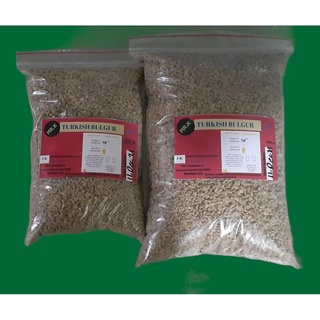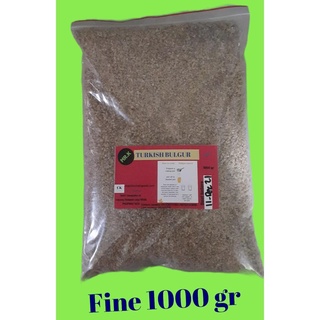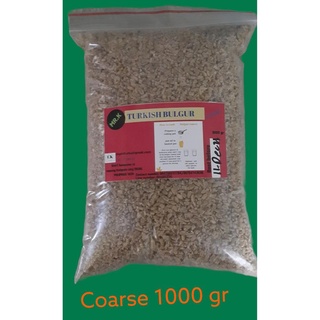Sell ADLAI RICESHIRATAKI RICE℗✐MR.K TURKISH BULGUR (wheat,rice,trigo) best price
0
ratings
₱490
50% OFF
₱245 - ₱349
| Ships from | Intramuros, Metro Manila |
|---|---|
| Variation | 500 gr coarse 1000 gr coarse 500 gr fine 1000 gr fine |
Product Description
MR.K TURKISH BULGUR from wheat (trigo)
What Is Bulgur Wheat?
Bulgur is an edible cereal grain made from dried, cracked wheat — most commonly durum wheat but also other wheat species.
It is parboiled, or partially cooked, so that it can be prepared relatively quickly. When cooked, it has a similar consistency to couscous or quinoa.
Bulgur is considered a whole grain, meaning that the entire wheat kernel — including the germ, endosperm and bran — is eaten.
Bulgur originated in the Mediterranean and can be traced back thousands of years. To this day, it’s a staple ingredient in many Middle Eastern and Mediterranean dishes.
Nutrient Content
Not only is bulgur tasty and quick to prepare but also very nutritious.
Because it’s a minimally processed grain, it maintains more nutritional value than more refined wheat products.
Bulgur contains a variety of vitamins and minerals, as well as a substantial amount of fiber. In fact, a single serving provides over 30% of the Reference Daily Intake (RDI) for thus nutrient
Bulgur is a particularly good source of manganese, magnesium and iron and also slightly lower in calories than other comparable whole grains, such as brown rice or quinoa
A 1-cup (182-gram) serving of cooked bulgur offers
Calories: 151
Carbs: 34 grams
Protein: 6 grams
Fat: 0 grams
Fiber: 8 grams
Folate: 8% of the RDI
Vitamin B6: 8% of the RDI
Niacin: 9% of the RDI
Manganese: 55% of the RDI
Magnesium: 15% of the RDI
Iron: 10% of the RDI
Supports Healthy Blood Sugar Control
Compared to refined grains, whole grains are associated with a reduced blood sugar response and lower insulin levels. Some research indicates that whole grains may also improve overall insulin sensitivity
While fiber is often thought responsible for these effects, plant compounds in whole grains may also play an important role
Bulgur wheat is a rich source of both fiber and phytonutrients, which could help improve your blood sugar control









